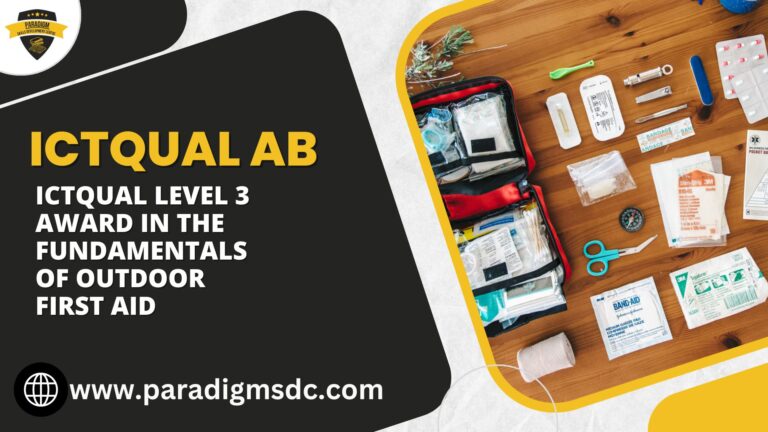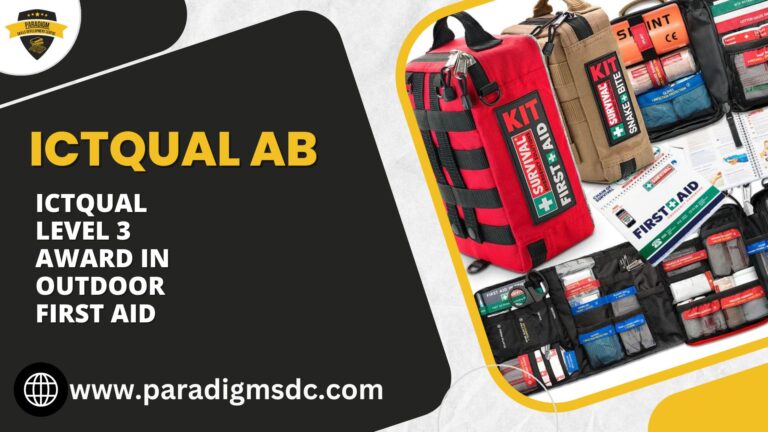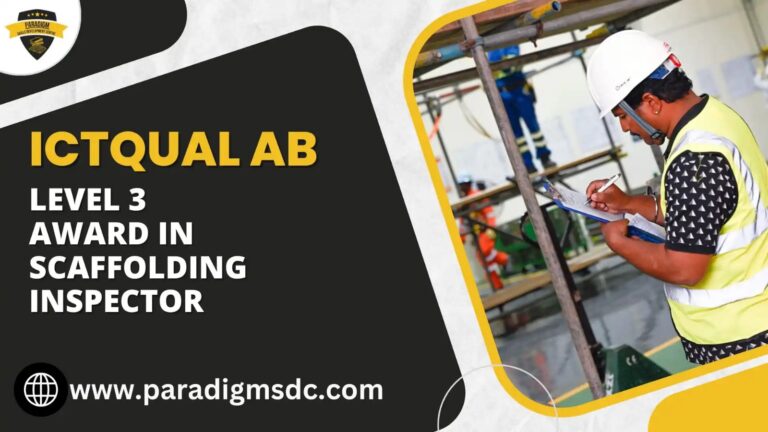Course Introduction
The ICTQual Level 2 Award in Cardiopulmonary Resuscitation (CPR) and Automated External Defibrillation (AED) is a vital certification designed for individuals who wish to acquire life-saving skills. This course equips participants with the knowledge and practical ability to perform CPR and use an AED effectively, making a significant difference in emergency situations. Whether you’re a healthcare professional, a first responder, or simply a concerned citizen, this award can empower you to save lives.
Course Overview
This comprehensive course provides participants with hands-on training in both CPR and AED use. It covers essential concepts and techniques to ensure that learners can respond confidently and competently during cardiac emergencies. The training is designed to be interactive, combining theoretical knowledge with practical exercises to reinforce learning.
Course Study Units
The ICTQual Level 2 Award in CPR and AED includes the following study units:
- Introduction to Cardiopulmonary Resuscitation (CPR)
- Recognizing Cardiac Emergencies
- Performing High-Quality CPR
- Introduction to Automated External Defibrillators (AED)
- Using an AED
- Safety and Legal Considerations
- Special Considerations
Learning Outcomes
Upon successful completion of the course, participants will be able to:
Introduction to Cardiopulmonary Resuscitation (CPR)
- Understand the purpose and importance of CPR in emergency situations.
- Describe the biological basis of cardiac arrest and how CPR helps maintain circulation and oxygenation.
- Identify the key components of effective CPR (chest compressions and rescue breaths).
2. Recognizing Cardiac Emergencies
- Identify the signs and symptoms of various cardiac emergencies, including heart attacks, cardiac arrest, strokes, and choking.
- Differentiate between a heart attack and cardiac arrest.
- Assess an emergency scene for safety and determine the appropriate response.
3. Performing High-Quality CPR
- Perform chest compressions and rescue breaths correctly for adults, children, and infants.
- Demonstrate proper hand positioning, compression depth, and rate during CPR.
- Minimize interruptions during CPR to ensure continuous blood flow.
- Practice high-quality CPR techniques in simulated scenarios.
4. Introduction to Automated External Defibrillators (AED)
- Understand the function and importance of AEDs in cardiac emergencies.
- Explain how an AED works and when it should be used.
- Differentiate between AEDs and manual defibrillators.
5. Using an AED
- Follow the step-by-step process for using an AED, including attaching pads and following voice prompts.
- Ensure safety while using the AED, such as avoiding contact during shocks.
- Demonstrate the ability to use an AED effectively in practice scenarios.
6. Safety and Legal Considerations
- Implement safety protocols to protect both the rescuer and the victim.
- Understand the legal responsibilities and implications of providing CPR and using an AED, including obtaining consent and Good Samaritan laws.
- Apply infection control measures, including the use of protective equipment.
7. Special Considerations
- Adapt CPR and AED techniques for special situations, such as with pregnant women, individuals with pacemakers, and in cases of drowning.
- Handle foreign body airway obstruction (choking) effectively.
- Recognize and respond to unique challenges and variations in cardiac emergency scenarios.
Course Benefits
The ICTQual Level 2 Award in CPR and AED offers numerous benefits, including:
- Life-Saving Skills: Gain the ability to respond effectively in cardiac emergencies, potentially saving lives.
- Confidence and Competence: Build confidence in your ability to perform CPR and use an AED correctly.
- Certification: Receive a recognized certification that validates your skills and knowledge.
- Enhanced Employability: Improve your prospects in roles that require CPR and AED training, such as healthcare, education, and public safety.
- Personal Fulfillment: Experience the satisfaction of being prepared to help others in critical situations.
Who Is This Course For?
This course is ideal for:
- Healthcare Professionals: Nurses, doctors, paramedics, and other medical staff who need to maintain their CPR and AED skills.
- First Responders: Firefighters, police officers, and emergency medical technicians.
- Teachers and Childcare Providers: Individuals responsible for the care and safety of children.
- Fitness and Sports Instructors: Coaches, trainers, and gym staff who may encounter cardiac emergencies.
- General Public: Anyone who wants to be prepared to assist in a cardiac emergency.
Future Progression
Upon completing the ICTQual Level 2 Award in CPR and AED, participants may consider further training to expand their emergency response skills. Potential progression includes:
- ICTQual Level 3 Award in Emergency Paediatric First Aid: Focus on providing first aid to infants and children.
- ICTQual Level 3 Award in Administering Emergency Oxygen: Learn how to administer emergency oxygen in various situations.
- ICTQual Level 3 Diploma in Health Safety and Environment: Broaden your knowledge in health and safety practices across different environments.
- Advanced Life Support (ALS) Courses: For those looking to deepen their expertise in advanced emergency care techniques.
Embark on this life-changing journey with the ICTQual Level 2 Award in Cardiopulmonary Resuscitation and Automated External Defibrillation, and become a vital link in the chain of survival.
This post outlines the importance, structure, and benefits of the ICTQual Level 2 Award in CPR and AED, aiming to attract individuals who are passionate about acquiring critical life-saving skills.







